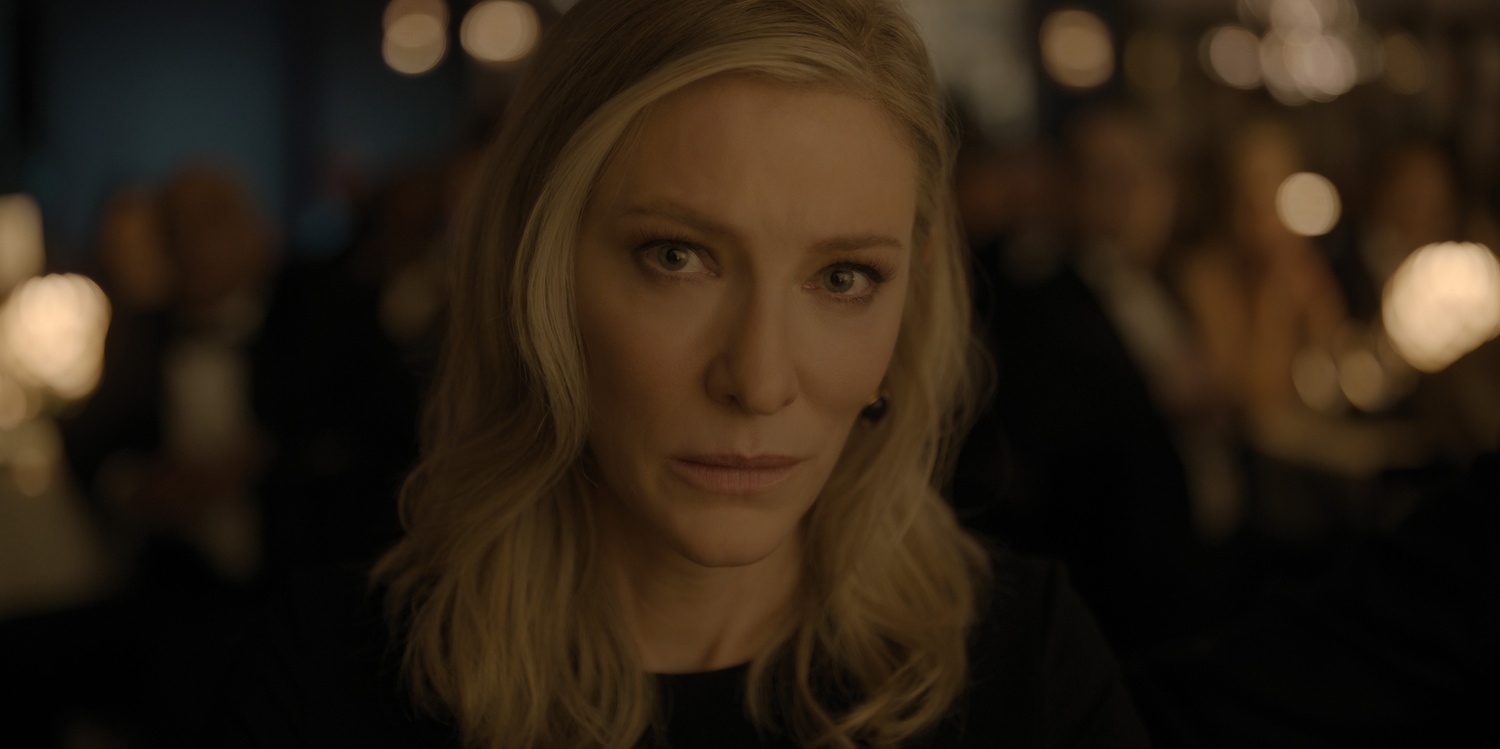
News
When Professors Speak Out, Some Students Stay Quiet. Can Harvard Keep Everyone Talking?

News
Allston Residents, Elected Officials Ask for More Benefits from Harvard’s 10-Year Plan

News
Nobel Laureate Claudia Goldin Warns of Federal Data Misuse at IOP Forum

News
Woman Rescued from Freezing Charles River, Transported to Hospital with Serious Injuries

News
Harvard Researchers Develop New Technology to Map Neural Connections
‘Disclaimer’ Review: A Dramatic Narrative of Vengeance
3.5 Stars

“Disclaimer” opens with two teenagers on a train to Italy. They’re both free-spirited and a bit brash, wreaking havoc on train conductors and gondoliers. They’re young and in love, without a care in the world.
However, this is a misleading introduction. “Disclaimer” is not about these two — it’s about Catherine Ravenscroft (Cate Blanchett), a celebrated documentarian with a dark past. Taking place across two time periods, “Disclaimer” transitions between the two decades with distinct iris shots each time.
This striking visual choice is just one of the many interesting decisions Oscar-winning director Alfonso Cuarón makes. There are also two narrators. One is deuteragonist Stephen Brigstocke (Kevin Kline), a recently retired teacher in his 70s. The other seems to be an omniscient second-person narrator who voices Catherine’s thoughts, which is quite a jarring touch to the narrative.
“Disclaimer” is Cuarón’s first foray into miniseries, based on Renée Knight’s 2015 novel of the same name. Known for films such as “Roma”, “Gravity”, and “Y tu mamá también,” this is Cuarón’s first project for Apple TV+, where he signed an exclusive television deal in 2019. Apple TV+ released the first two (out of seven) episodes of the show on Friday, Oct. 11.
Shot by three-time Oscar-winning cinematographer Emmanuel Lubezki and Bruno Delbonnel, “Disclaimer” is full of gorgeous visuals, the muted grayness of England contrasted with the bright, sepia-toned shots of an Italian summer. Catherine’s life is the picture of wealth. She and her husband, shady NGO businessman Robert Ravenscroft (Sacha Baron Cohen) drink expensive wines in a modern, open kitchen. Her cat follows her every move, so often in frame that it must be intentional.
In contrast, Brigstocke lives alone and wears his late wife’s moth-eaten pink cardigan. Now free from his teaching duties, he hatches a plot of revenge. Kline, convincingly British, plays Brigstocke with a mischievous air of pure spite.
“Disclaimer” is a story within a story. One day, a book entitled “The Perfect Stranger” arrives at Catherine’s doorstep, written pseudonymously by Brigstocke. It features a chilling, titular disclaimer: “Any resemblance to persons living or dead is not a coincidence.” Catherine quickly realizes the book is about her and a long-held secret she thought no one else knew.
Viewers soon find out that the young man at the beginning, Jonathan (Louis Partridge), had met a young Catherine (Leila George) in Italy. Jonathan is also Brigstocke’s son who met an early death. The audience is left wondering what Catherine did to Jonathan that she’s so desperate to conceal.
Blanchett plays the victim well in these episodes, very far removed from the confident, scandalous flashbacks of her younger self. Still, she has yet to showcase the full range of her acting, signaling there are definitely more sides to Catherine that viewers have yet to see. The show has an intriguing premise, but the first two episodes unfortunately do not provide many answers. Instead, questions are raised about Jonathan and the relevance of his pink-haired girlfriend Sasha (Liv Hill), who made a mark on the first episode.
The gratuitous use of iris shots seems more stylistic than purposeful. It’s also unclear who’s in control of the show’s narrative: Catherine, Brigstocke, some omniscient being, or a character within the novel.
Blanchett and Kline hold together a sprawling mystery that relies a bit too much on voiceover. Viewers are mostly told about Catherine’s inner thoughts from an unnamed voice, rather than shown them, making the show feel oddly literary, but perhaps fitting with the novel-within-a-novel theme. However, Cuarón’s expertful tension building — best displayed by a confrontation scene between Catherine and Robert in episode two — keeps audiences hooked throughout and waiting for the truth to unravel.
In Brigstocke’s book, the Catherine character gets what she deserves, but Catherine in the real world might put up a bigger fight. At seven episodes and a runtime of five hours and 43 minutes, one should expect many twists and turns and hope the series doesn’t get too carried away as psychological thrillers sometimes do. Cuarón has a lot of material to work with along with an excellent cast and crew, so it seems the pace will only pick up from here.
Want to keep up with breaking news? Subscribe to our email newsletter.
